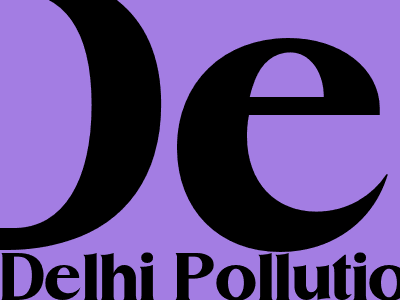
Delhi Pollution live updates: Supreme Court to hear plea on toxic air today
High-level meeting on Delhi pollution; important decisions expected
SC to hear plea on Delhi's toxic air today
The Supreme Court will hear a plea today seeking directions to the Centre and the Delhi government to take steps to control air pollution in the national capital. A bench headed by Chief Justice S A Bobde will take up the matter at 10.30 am.
The apex court had on November 25 rapped the Centre and the Delhi government for not taking effective steps to curb air pollution in Delhi and said that "something drastic" needed to be done.
The court had also observed that the air quality in Delhi was "very poor" and had asked the Centre and the Delhi government to file status reports on the steps taken by them to control air pollution.
High-level meeting on Delhi pollution; important decisions expected
A high-level meeting chaired by Prime Minister Narendra Modi is scheduled to be held today to discuss the worsening air pollution situation in Delhi. The meeting will be attended by Union Environment Minister Prakash Javadekar, Delhi Chief Minister Arvind Kejriwal and other senior officials.
The meeting is expected to take important decisions to tackle the air pollution crisis in Delhi. The government is likely to announce measures to reduce vehicular emissions, dust pollution and industrial pollution.
The government may also announce a ban on construction activities in Delhi and the closure of schools and colleges. The government may also impose a fine on people who burn garbage or crackers.
Air quality in Delhi remains 'very poor'
The air quality in Delhi remained 'very poor' on Saturday, with the Air Quality Index (AQI) recorded at 398. The AQI is a measure of the concentration of particulate matter (PM) in the air.
PM2.5 and PM10 are the two main types of particulate matter. PM2.5 is the finer of the two and can penetrate deep into the lungs, causing respiratory problems.
The major sources of air pollution in Delhi are vehicular emissions, industrial emissions, dust and construction activities. The burning of garbage and crackers also contributes to air pollution.
Effects of air pollution on health
Air pollution can cause a variety of health problems, including asthma, bronchitis, pneumonia and lung cancer. It can also lead to heart disease, stroke and other cardiovascular problems.
Air pollution can also cause headaches, nausea and vomiting. It can also lead to fatigue and difficulty sleeping.
What can be done to reduce air pollution?
There are a number of things that can be done to reduce air pollution, including:
- Reducing vehicular emissions: This can be done by promoting the use of public transport, carpooling and walking or cycling.
- Controlling industrial emissions: This can be done by implementing stricter emission standards and enforcing them.
- Reducing dust pollution: This can be done by watering roads and construction sites, and by planting trees.
- Banning the burning of garbage and crackers: This can help to reduce air pollution and improve air quality.